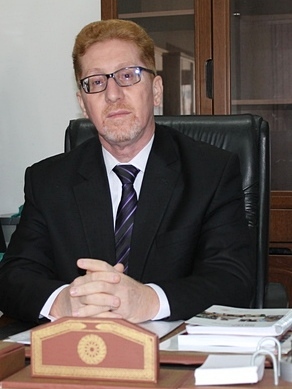
In light of this, the Ministry of Higher Education and Scientific Research has called on universities to confront various regional and international challenges in a way that positions them among the leading universities. Accordingly, Biskra University has developed an effective strategy based on utilizing available resources, including human resources, pedagogical and scientific structures, to enhance its role at the local, national, and even international levels. This is achieved through the exchange of technological skills, innovation, scientific development, and applied research, aiming to achieve social and economic development within a sustainable environment. This is accomplished by improving the quality of training and research programs, as well as developing vocational training and innovative offerings designed in collaboration with economic actors to contribute to the crystallization of an entrepreneurial culture.
This qualitative leap at all levels has propelled our university to the ranks of global universities, which has influenced the mindset of our students in all fields to align with major global transformations.
Therefore, the key objectives of our university today are:
1. Accompanying students in further academic achievement, where all students should engage in intellectual activities that challenge their abilities. Moreover, their graduation projects should serve as a means to provide local and national added value.
2. Highlighting the importance of scientific research by supporting laboratories and research teams, and encouraging researchers to engage with the local community to conduct scientific studies and implement developmental programs that enhance the socioeconomic standard of the entire local community. Additionally, fostering communication with other national and international universities, promoting scientific visits for professors and students, and encouraging faculty members' participation in the development of new curricula and pedagogical programs that serve the province and the nation as a whole.
3. Enhancing cooperation between the university and its social and economic environment by addressing the requirements of economic actors in various fields, including economic, industrial, and research domains. This is to achieve predetermined common goals by leveraging the available resources and expertise to realize mutual benefits.
4. Opening up to the world through scientific and cultural exchange, expanding the mobility of students, professors, and researchers within the framework of collaborative educational and research programs, activating cooperation and twinning agreements with distinguished international universities to improve the quality of education and research, as well as developing vocational training and innovative offerings designed in collaboration with economic actors to contribute to the crystallization of an entrepreneurial culture.
Our university has achieved excellent scientific progress, especially in recent years, as it ranked sixth nationally according to the latest Times Higher Education World University Rankings for 2022. This annual ranking of universities is published by the British magazine Times Higher Education in collaboration with Thomson Reuters. The ranking is based on various criteria and corresponding percentages, including 30% related to higher education, such as curricula, courses, and the number of professors, instructors, and registered students in the three levels. Additionally, 30% is related to scientific research, including scientific inputs, participation in international and national conferences, and 30% is related to applied research results. Furthermore, 7.5% is related to the number of international students and international cooperation agreements, while 2.5% is associated with revenues from university research laboratory activities.
Finally, I urge everyone in their respective positions to continue the journey and work together to uplift our university and achieve our desired aspirations in shaping a generation capable of serving society with knowledge, integrity, sincerity, and elevating it to the ranks of distinguished communities. I would also like to express my appreciation and gratitude to my colleagues, both faculty members and administrative staff,
for their tremendous efforts in advancing our university.
May Allah guide us all towards the best interests of the university and the nation.
University Director,
Professor Debabeche Mahmoud
